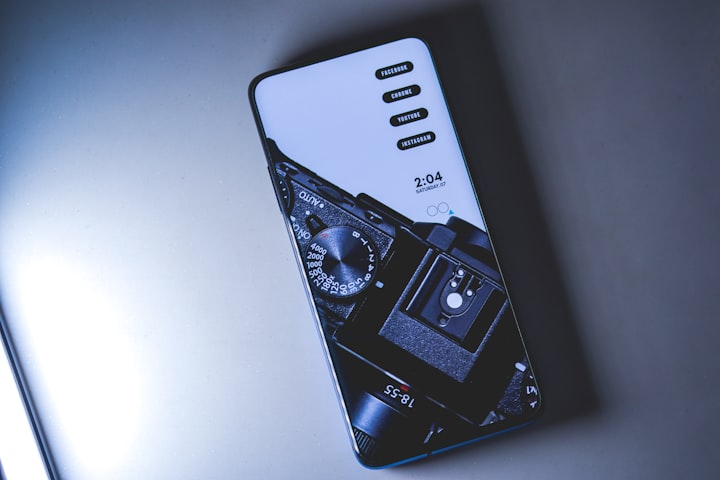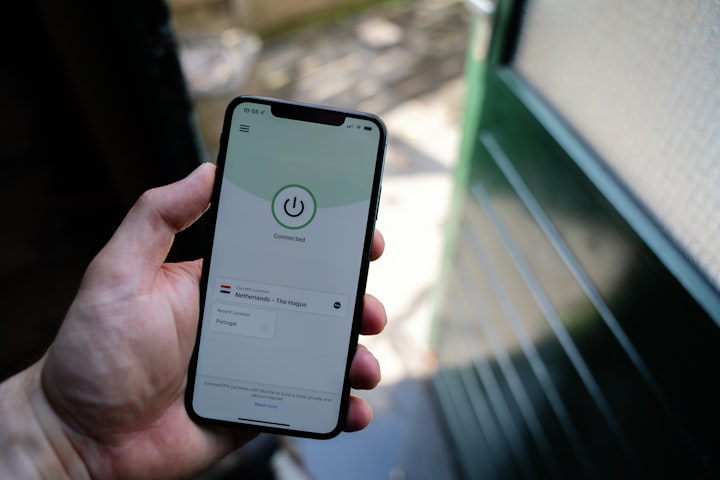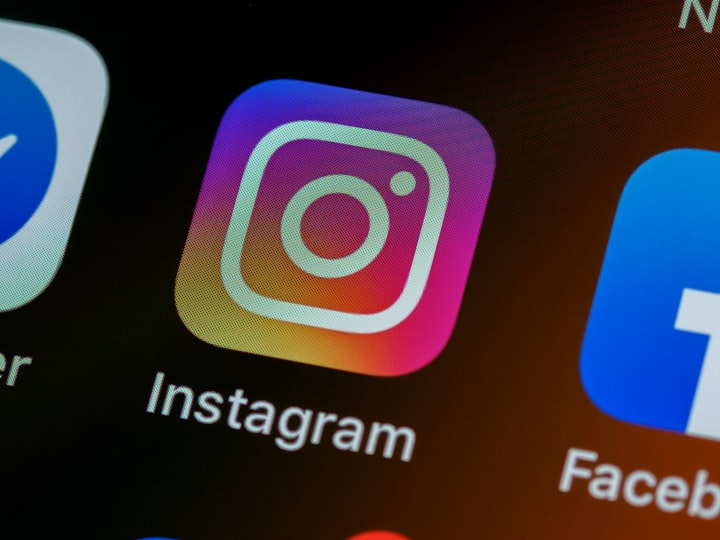Why The End Of The Smartphone Is Imminent
How Would Smartphone Look Like In 15 Years?

Let's take a look into the future: Imagine it's the year 2035. Will companies like Apple, Samsung, Huawei, OnePlus, Xiaomi, and Co. actually still develop and sell smartphones? Will Tim Cook - if he should still hold the office of Apple CEO in 2035 - present an iPhone 20 to a cheering audience in the Steve Jobs Theater? Will Samsung introduce a Galaxy S36 in the same year? I do not think so. My guess: The smartphone as we know it today is slowly dying out.
Why We (Still) Love Smartphones
Viewed objectively, a smartphone is a technical device - and you have a lot of it around at home. Strangely enough, I have a different relationship with my smartphone than with my television, toaster, microwave, or electric toothbrush. Why this is so is not really a big secret. Because in contrast to my toaster or the microwave, my smartphone is a device that is capable of much more. I can communicate with family and friends, I can take excellent photos and videos, and I have the collective knowledge of humanity in my pocket on demand.
We see smartphones more like people and we develop feelings or emotions for certain smartphone brands. It is not without reason that the classic "war" between Apple and Android fans has been going on for years. Because it goes beyond technology. And that somehow makes the smartphone special. At least for now.
When I say that the smartphone may be extinct in around 15 years, I don't mean that no one is using a smartphone anymore. On the contrary: Presumably, everyone on this planet will use a smartphone. Nonetheless, I am convinced that the importance of the smartphone will decrease considerably and that the market will inevitably change as a result.
Around 13 years after the introduction of the first iPhone generation, one can see how people's attitudes towards smartphones have changed. While users initially stayed in tents in front of the Apple Stores, the next day they were the first to be in the queue and a new iPhone To be able to get hold of, nobody makes this effort these days. Changes in user behavior can also be seen on YouTube. The relevant target groups do not understand the high prices that manufacturers charge for their latest features. After all, Apple is no longer the only smartphone manufacturer that charges more than 1000 euros for a smartphone. But how long will it go on?
Another Generation
Probably not too long. Why? Because many people take smartphones for granted. I could imagine that this has something to do with the age of coming into contact with smartphones for the first time. According to the AOK, 56 percent of 8 to 9-year-olds already had their own smartphone in 2019. Among the 10 to 11-year-olds it was already 82 percent; 97 percent of the age group 12 to 13 have an Internet-enabled cell phone.
You have to let that sink in first. These children grow up knowing that they have a device in their pocket that allows them to access the Internet at any time, take high-resolution photos and videos, or stream music and videos. These children will probably later be among those people who don't want to spend 1000 euros on a smartphone - for them all of this is completely normal.
These children grow up with a technology that is still something special for many older smartphone users - and I am now just including myself at the age of 27 - nowadays. Because you know what the technology looked like in front of all the smartphones. And that's why people may be willing to spend 1,000 euros on a smartphone. Because they value it differently.
Better And Better? Always Faster?
Smartphone manufacturers are currently grappling with another major problem anyway. To be completely honest, the only difference between the devices is their operating system. Otherwise, they look very similar, they all have a good camera on board - and depending on how much money you want to spend, you can still get “new” features like a 120 Hz display, 5G function, or something else a fingerprint ID sensor under the display.
But this technology will be standard in 15 years. In 2036, every device will have a 120 Hz display (or more?) And 5G or even 6G, which will gradually replace 5G from 2030. Perhaps in 15 years' time, it will be possible to use 6G nationwide in Germany - who knows.
At this point, however, the question may be asked: What are the smartphone manufacturers trying to lure us within the not-so-distant future? With an even better camera onboard? But even there there are simply physical limits. At some point the hardware just doesn't get any better in such a small device, then only the software can provide even better images. What features should smartphones have in the future so that people still buy the devices every year? How long will the smartphone hype last?
ake the television, for example. Do you remember how proud you were back then to have your own television? Nowadays television is only interesting if it is particularly large and at the same time inexpensive.
Or let's take a car. A car is still something special, it stands for freedom and at the same time is quite expensive. Not everyone can afford a car, like some smartphones. But when it comes to cars, too, the trend continues towards car sharing. In large cities, in particular, you will no longer have to rely on your own car in 2021. Such an attitude towards the subject of cars was inconceivable 15 years ago.
In my opinion, the television and the car show very well that certain products are taken for granted in society over time or replaced by alternatives and thus become irrelevant. Can you immediately name a technical device that has not lost its importance even after 15 years?
Are Foldable Smartphones The Future?
In my opinion, smartphone manufacturers are aware of this problem. What do you think, why Samsung and Huawei - and allegedly Apple too - are researching foldable smartphones or are even selling some of them? So-called phablets - a mixture of tablets and smartphones - are unfortunately not very popular at the moment. On the one hand, because they are too expensive and, on the other hand, because the technology is not yet fully developed. But basically, such a phablet is an interesting thing.
I actually believe that 15 years from now we will look at today's smartphones as we see the first phones from back then. With a certain nostalgia. Maybe a new trend will develop, and in 15 years everyone will only want very small smartphones. Or maybe there will be completely new devices in the future that will replace smartphones, such as smart glasses or larger smartwatches so that the smartphone is basically worn on the wrist. Or smartphones with holograms.
Of course, I don't have an exact answer to what the future looks like. The only question is, how long can smartphone manufacturers bring out a new model with minor changes year after year until people realize that smartphone features are not going to improve much? Current sales figures show that the smartphone hype is far from over. But that was also what people thought of the iPods, which are now gathering dust in a drawer.






Comments
There are no comments for this story
Be the first to respond and start the conversation.